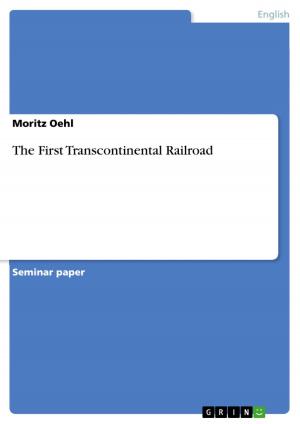Governing family enterprises and implications for performance - a financial perspective
a financial perspective
Business & Finance, Finance & Investing, Finance| Author: | Oliver Bruemmer | ISBN: | 9783638034272 |
| Publisher: | GRIN Publishing | Publication: | April 9, 2008 |
| Imprint: | GRIN Publishing | Language: | English |
| Author: | Oliver Bruemmer |
| ISBN: | 9783638034272 |
| Publisher: | GRIN Publishing |
| Publication: | April 9, 2008 |
| Imprint: | GRIN Publishing |
| Language: | English |
Bachelor Thesis from the year 2008 in the subject Business economics - Investment and Finance, grade: 1,9, European Business School - International University Schloß Reichartshausen Oestrich-Winkel, 93 entries in the bibliography, language: English, abstract: Small and medium-sized enterprises (SMEs) represent the engine of Germany's economy. Despite the fact that business magazines and newspapers appear to favor covering large international companies, public awareness of formerly in the background operating enterprises has risen within the last years. People are increasingly aware of the im-portance of smaller businesses. They notice that not only do smaller companies secure employment and wealth in their specific region of operation, but they also provide the overall economy with more employment than their multinational counterparts. An important group of SMEs are the so-called family enterprises. A significant proportion of family enterprises have become global players themselves and have even ex-celled, in their particular field, to world market leaders. Besides Porsche and Villeroy & Boch, as two typical German examples of formerly small family enterprises which have developed continuously from regional to worldwide-operating businesses, many others could be named to illustrate this stunning development of family-owned businesses. Paralleling the successful development of family businesses, researchers and practitioners alike have drawn their attention to the nature and particularity of family businesses.
Bachelor Thesis from the year 2008 in the subject Business economics - Investment and Finance, grade: 1,9, European Business School - International University Schloß Reichartshausen Oestrich-Winkel, 93 entries in the bibliography, language: English, abstract: Small and medium-sized enterprises (SMEs) represent the engine of Germany's economy. Despite the fact that business magazines and newspapers appear to favor covering large international companies, public awareness of formerly in the background operating enterprises has risen within the last years. People are increasingly aware of the im-portance of smaller businesses. They notice that not only do smaller companies secure employment and wealth in their specific region of operation, but they also provide the overall economy with more employment than their multinational counterparts. An important group of SMEs are the so-called family enterprises. A significant proportion of family enterprises have become global players themselves and have even ex-celled, in their particular field, to world market leaders. Besides Porsche and Villeroy & Boch, as two typical German examples of formerly small family enterprises which have developed continuously from regional to worldwide-operating businesses, many others could be named to illustrate this stunning development of family-owned businesses. Paralleling the successful development of family businesses, researchers and practitioners alike have drawn their attention to the nature and particularity of family businesses.















